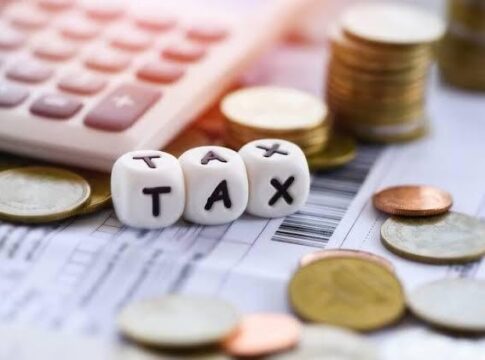Nigerians earning the minimum wage and slightly above will be exempt from the Pay As You Earn (PAYE) tax under the newly proposed Tax Reform Bills, according to Taiwo Oyedele, chairman of the Presidential Fiscal Policy and Tax Reform Committee. This reform, which is expected to be signed into law, promises significant relief for low-income earners across the country.
Under the proposed changes, those earning up to N1.7 million per year will see a reduction in their tax obligations, with the majority of workers benefiting from lower rates. Oyedele explained that individuals earning the national minimum wage of N70,000—an increase from the previous N30,000—will be fully exempt from PAYE tax. He stressed that these reforms aim to ensure that about 98% of workers, both in the public and private sectors, will pay less tax, while the top 2% will face slightly higher rates, capped at 25% for high-net-worth individuals.
The proposed tax structure, which has been overdue for a review since its introduction in 2011, addresses issues like “fiscal drag,” where many low-income workers have been pushed into higher tax brackets due to inflation. By simplifying the tax code, removing unnecessary allowances, and adjusting income brackets, the reform seeks to provide a fairer, more efficient system. “The aim is for even individuals with basic education to be able to file their taxes independently,” Oyedele added.
READ MORE: IGP Calls for Crackdown on Police Corruption, Orders Swift Action Against Corrupt Officers
The reform also promises to support vulnerable groups, with one-third of all workers—primarily low-income earners—being completely exempt from tax. Additionally, self-employed individuals and entrepreneurs will enjoy the same tax exemptions as formal employees. A key aspect of the VAT reform is the introduction of a 0% rate for essential goods like food, healthcare, and education, along with exemptions for rent and public transportation. This will ease the financial burden on Nigerian households, particularly those in lower income brackets.
Furthermore, the reform includes provisions to support remote work, enabling Nigerian youths to tap into the global business process outsourcing industry. This move is expected to bolster the nation’s digital economy, creating opportunities for a growing workforce.
Despite the widespread benefits, the proposed bills have faced criticism, particularly from northern elites who believe the reforms may not benefit their region. As the National Assembly continues to review the bills, Oyedele emphasized that the Presidential Fiscal Policy and Tax Reform Committee is focused on implementation, ensuring that the reforms lead to tangible improvements in fiscal governance and economic growth.




